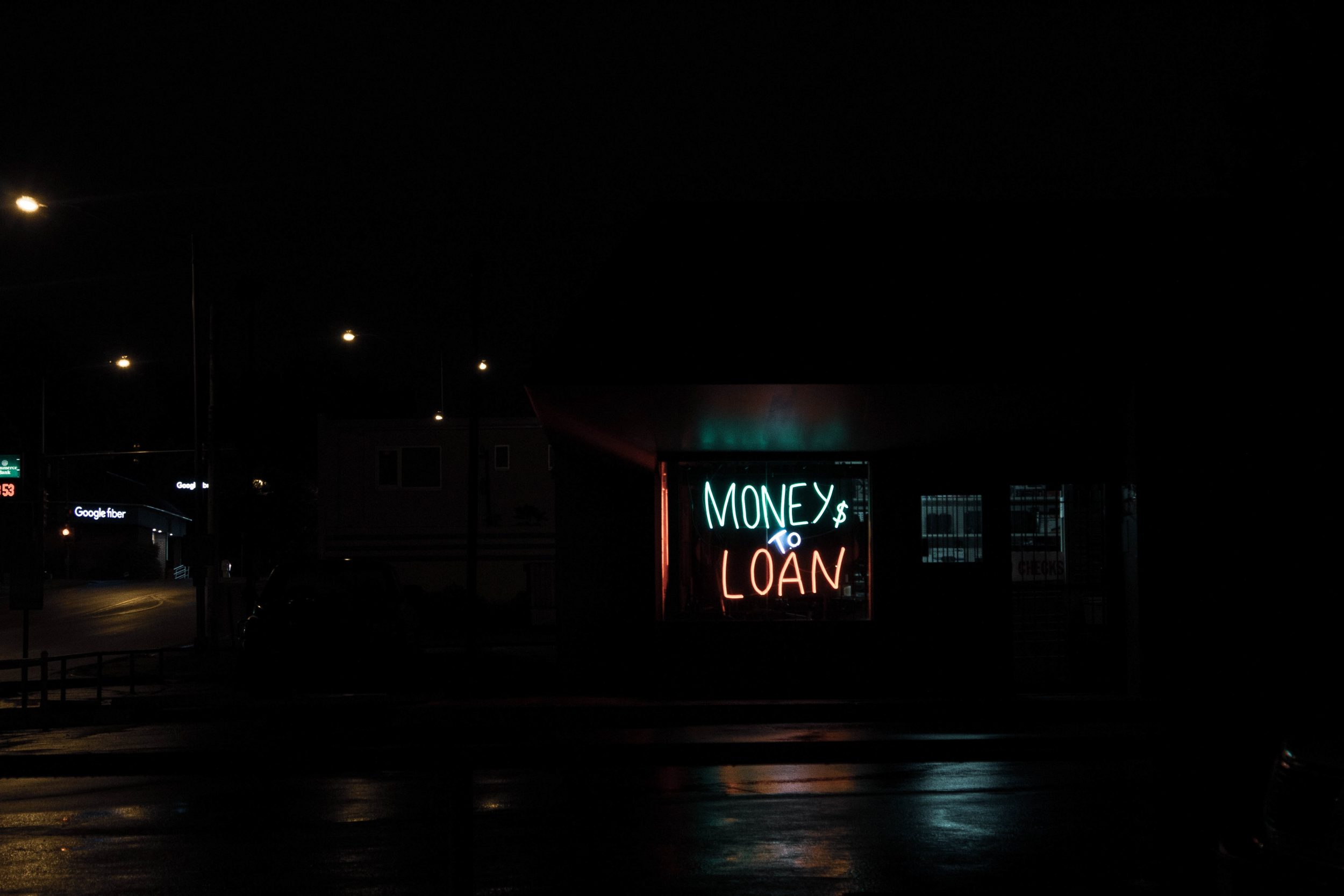In January, Annita Husband, a Black mother in Mississippi, told her story of being anchored to debt from fines and fees — and of having to choose between fleeing a so-called “restitution center,” which is a literal debtors’ prison, or staying there for more than a year and a half while she worked for pennies to get out of her crushing, court-ordered debt. Both options, if one could call them that, criminalized her for not having enough money. “You’re there without an end. You do not know when you’re getting out, when you’re going to be finished,” she said of her time in the state’s restitution center. “That’s torture.”
Stories such as this one underscore that as we approach the two-year mark of the murder of George Floyd, Breonna Taylor, and the ensuing public pledges by politicians to advance racial justice, very little has been done to materially advance equity for Black Americans in tangible, measurable ways. Yet a concrete, straightforward strategy to begin to make good on our leaders’ undelivered promises and create a country that’s finally just for Black Americans — especially for Black women, who are among the most marginalized by institutional inequities — is to end the legal system’s reliance on fines and fees.
Fines and fees are pervasive everywhere. And there is no better example of the inherent anti-Blackness of the U.S. carceral system than the practice of extracting money within our criminal legal system. The persistent narrative of rampant Black criminality and the systemic racial bias baked into the criminal legal system render fines and fees a reality that falls disproportionately on Black communities, with cascading effects on other low-income communities. These fines and fees are not only incredibly extractive, stripping wealth from Black communities that have been denied access to wealth-building for centuries. They also serve as another source of punishment for people who have been incarcerated and their families.
For Black women in particular, even if they are not themselves convicted and incarcerated, they are often the ones who care financially and emotionally for their brothers, uncles, fathers, cousins, and sons, when any one of them faces incarceration or arrest. This extracts from their wealth in relationship to time, stress, health, and money. Making matters worse, jurisdictions typically net very little or even lose revenue from the practice of imposing these fees — most people burdened with these charges are stuck in low-paying jobs, unemployed, or simply cannot afford to pay them.
Monetary sanctions are part of a long history of racialized wealth extraction and state and municipal predatory practices that unfairly attempt to generate revenue on the backs of Black residents. The U.S. criminal legal system was borne of a racialized history of social control and the marginalization of African Americans, beginning with the enslavement of people of African descent in the early 1600s. This early form of subjugation was supported through the creation of slave codes, which allowed patrols to stop and capture African Americans who had been enslaved and return them to enslavers. Following the ratification of the 13th Amendment, which ended legalized slavery except in cases of “punishment for crime whereof the party shall have been duly convicted,” slave codes were adapted into racial, or “Black,” codes. Black codes and subsequent Jim Crow laws led to the criminalization of the daily activities of African Americans — and enforced limitations on entrance into labor contracts and property ownership ushered in America’s first iteration of mass conviction in the 19th century.
Both informal and formal mechanisms led to the exclusion of African Americans from structural opportunities for advancement and their disproportionate representation among those entangled with the criminal legal system. The structure and culture of this distinctively American system are borne of these historic realities, and the persistent and disproportionate repression of African Americans lies at the foundation of American institutions. The shape of domination has changed, but the raced and classed outcomes of this system of social control remain consistent across time and space.
The contemporary criminal legal system continues this legacy with the onset of a second wave of mass conviction and incarceration starting in the 1970s. In the past several decades, in lockstep with our nation’s turn toward more criminalization and punishment, local and state governments have increased their reliance on these racist and unjust practices because, as jails and prisons became overfilled, those who ran them needed to find new ways to expand their budgets to pay the costs of mass imprisonment. Thus, this system of monetary sanctions expanded out of necessity — yet supply couldn’t meet demand, as local jurisdictions were unable to shoulder financial burdens associated with the later prison boom in the 1990s.
As this tragedy came to a head during this period, policymakers and local officials turned to the ineffective and harmful practice of boosting revenue by imposing monetary sanctions on people from low-income communities of color — through a litany of often-arbitrary fines, fees, surcharges, and costs. Legal financial obligations — or LFOs, as these burdens are known — effectively lock people and their communities in a cycle of prolonged legal entanglement, poverty, and disadvantage, aiding in the development of race-class subjugated communities. In this context, LFOs represent not just a pathway towards the reproduction of neighborhood inequalities, but are also a continuation of racially targeted social control — and thus a crucial part of our nation’s contemporary racialized social system.
This kind of economic abuse made national headlines in the aftermath of the Ferguson uprisings, which laid bare how municipal profiteering undergirded many of the policing failures that gave rise to the Black Lives Matter movement. A 2015 U.S. Department of Justice investigation found that officials in Ferguson repeatedly urged the police department and municipal courts to increase fines and fees to generate more revenue. This practice not only exacerbated deep-seated inequalities in the city, but also fed a vicious cycle where its poor residents were made to pay for public services that were often lacking in communities in the first place. Little, if any, progress has been made on this injustice in the years since.
Little, if any, progress has been made on the injustice of municipal profiteering in the years since Ferguson.
Since police target and intensely surveil Black and brown communities, the resulting wealth extraction disproportionately impacts those families. Since 2010, more than 48 states have either increased their criminal fees or adopted new fees. Local governments have come to rely heavily on the false narrative that revenue generated from fines and fees is a legitimate function of government, generating profits for cities and counties by “holding people accountable.” As a result, police have become de facto tax collectors, wielding low-level offenses such as minor traffic stops and citations for loitering, sleeping on the sidewalk, and other so-called “quality of life” issues that can serve as pretext for revenue generation.
The Deep Harm of Fines and Fees
As in Ferguson, pervasive, targeted policing in communities of color has led to disproportionate rates of police stops and arrests of the people living there, which means these communities are then on the hook forexorbitant fines and fees, which in turn extracts wealth and limits wealth accumulation.
For example, the average adult on probation in Alameda County in California owes about $6,000 in fees related to their incarceration and probation. This amount rises quickly when thegovernment imposes aninterest rate of up to 10 percent. Often, families of color and low-income families are already in a state of economic precarity and cannot afford to pay the fine or fee, forcing them to assume large legal debt burdens. The result is not only extractive, but also creates a significant debt anchor that cements communities of color in place and inhibits their ability to thrive and accumulate wealth.
Legal debt burdens from fines and fees are not only extractive, but also create a significant debt anchor that cements communities of color in place and inhibit their inability to thrive and accumulate wealth.
The effects are felt far beyond the initial financial toll. Many states also suspend driver’s licenses as a penalty for overdue fines and fees, a consequence that increases a person’s chances of arrest, warrants, incarceration, or increased fines for driving without a license. In most states, these fees are imposed in tandem with incarceration and probation, and the fiscal penalties must be paid in full before a person is released from court supervision and can have her records sealed or be able to vote. This cycle can lead to perpetual state surveillance, impoverishment, and the oppression of those who are already poor and racially marginalized. Because fines and fees are a form of punishment, they have a profound negative effect on the political, economic, legal, and overall health of Black people, families, and communities, stifling their chances to reach their full potential.
The Disparate Impact of Fines and Fees on Black Women
Black women uniquely bear the burden of penal debt in different and more punitive ways than others who encounter the system. Women are frequently relied upon to financially support partners with incarceration costs as well as fines and fees. The Ella Baker Center’s “Who Pays?” report found that even if women are not the ones being arrested or fined, they are primarily the ones paying the fine, fee, or bail money for their sons, grandsons, brothers, partners, uncles, and other family members. The report also found that 63 percent of court-related costs were paid for by family members outside the system, and that 80 percent of them were women.
Beyond the direct financial impacts of fines and fees, there are other pernicious consequences, which can be just as punitive, accompanying these fees. As noted above, these include driver’s license suspension, warrants, and loss of housing and employment, all of which lead to further stressors and strains on Black families and Black women.
For example, in a focus group conducted in Mississippi led by the Insight Center, one Black woman highlighted the financial and emotional stress that has come from her husband’s arrest and subsequent driver’s license suspension:
My husband, he’s 49. He was incarcerated 15 years . . . . He’s been out going on four years. He hasn’t been able to find a job, hasn’t had a job, won’t nobody give him a chance. So my income has to take care of my household.
Research shows that fines and fees negatively affect women and families and communities of color, and that Black people are disproportionately sanctioned with these costs compared to non-Black people. It follows, then, that Black women in particular experience a harmful relationship with the system of monetary sanctions — though the importance of this issue warrants more research to examine the intersectionality of race and gender and how monetary sanctions disparately impact Black women in particular.
By focusing on the experiences of Black women and building solutions to address the specific, disproportionate impacts they face, as well as their needs, we can begin to move away from a criminal legal system bent on creating more harm.
Policy Solutions Centering Black Women
Immediate policy reform is needed in the near term, but ultimately, the system of monetary sanctions needs to be entirely abolished. The only way to stop racialized wealth extraction from Black women and their families is to end the legal process of monetary sanctions through which it often occurs. As we work toward that future, there are some interim actions we can take.
Many incremental changes must occur at the state level to give Black communities and many low-income communities of color the economic relief they seek. States should follow the lead of California and expunge old, uncollectable debt accumulated through the levy of administrative fees. In the mold of Connecticut, states should also eliminate the fees associated with telecommunications for those incarcerated — and go even further to abolish all fees related to commissary or medical-related fees. States should also decouple the loss of the right to vote and to drive from unpaid fines and fees.
Additionally, jurisdictions at the county, city, and township level should be required to report the amounts of fines and fees imposed, owed, and collected, as well for related surcharges and interest, and have standardized tracking for a person’s race, gender, and income level whenever monetary sanctions are imposed. Lastly, rather than turning to racialized wealth extraction to generate revenue, which is both harmful and ineffective, states and localities should implement progressive revenue policy to fund public services needed in communities of color.
At the national level, because messages and symbols about crime and punishment have fueled mass conviction and incarceration, and the related system of legalized financial obligations, we need leadership at the federal level to reverse course and articulate a new policy direction that will help alleviate the harms done to our communities with the tools of the criminal legal system. One of the most foundational actions Congress can take to address monetary sanctions is repealing and replacing the Violent Crime Control and Law Enforcement Act of 1994, the so-called crime bill that President Joe Biden once sponsored as senator. This legislation codified a number of harms against Black Americans in particular — including expanding police power, more punitive sentences, and the creation of funding incentives for states and local governments, all of which compounded mass incarceration.
This ramping up of the criminal legal system at the local level, in turn, intensified its reliance on monetary sanctions, and Black communities have disproportionately borne their brunt. In the same way that the original crime bill sent a message, repealing it would send a potent statement to states — that the federal government recognizes that “tough on crime” policies have done immense harm to communities across the U.S. Similarly, a repeal bill from Congress could attach conditions to grants related to state law enforcement and justice initiatives to ensure reforms are swiftly enacted — and focused instead on care and support for communities.
The history, realities, and potential solutions we’ve laid out make it clear that our American system of monetary sanctions is a policy designed to exploit Black individuals, their families, and communities — a pound of flesh that many just do not have left to give.
This amalgamation of harms leaves abolition as the only true solution. Incremental reforms will never protect people from a largely discretionary system aimed at draining labor, money, and dignity from Black women like Annita Husband. Such a system can never be “just” — not in a society where people like her are offered incarceration instead of support. Impoverished citizens who are sentenced to pay fines and fees clearly understand their relationship to the state — they are forever indebted, forever subjected to court and police surveillance, control, and punishment. We have alternative options now as we fight for the ultimate goal of abolition; what we are lacking is the political will and leadership to create change.
Image: Daniel Thomas/Unsplash



